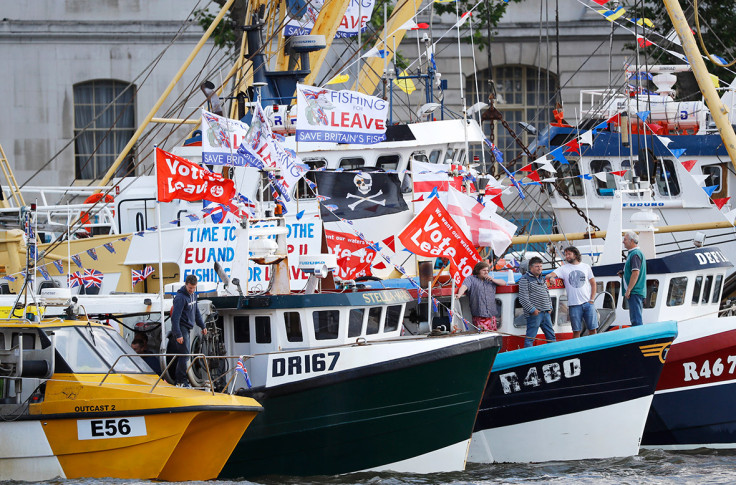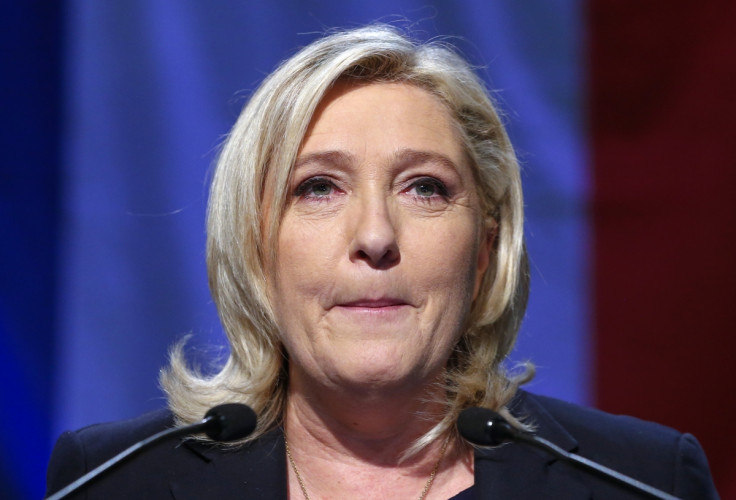EU referendum: How the rest of Europe views a Brexit
There are consequences to a vote for Brexit in the European Union (EU) referendum that reach far beyond the borders of Britain. The rest of the EU is watching anxiously. A vote to leave would likely embolden the many nativist and eurosceptic groups which have been on the upsurge in recent years amid the migrants crisis and economic turmoil. A Brexit could create a domino effect. A vote to remain may help the EU keep a lid on the ambitions of its critics.
Support for the EU in Sweden, which joined the 28-member state bloc in 1995, has dropped markedly in recent months. One poll in April by TNS Sifo found that just 39% of Swedes believed it was good to be in the EU, down from 59% a few months earlier, though only 21% thought it was bad.
"Some politicians on the left and far-right has lifted the issue of a Swexit, but there is no big debate yet," said Jens Kärrman, a political journalist at Dagens Nyheter, a daily newspaper in Sweden. "But if leave win next week, I'm quite sure we will see some kind of discussion about Sweden's future in the EU."
Emma Löfgren, editor of The Local Sweden, a news website, said a Brexit would mean Sweden losing one of its closest allies in the EU. "There is a clear concern that Sweden would be marginalised as a result, and perhaps pressured into joining the euro," she said.
"The debate in Sweden is different to that in the UK, for now. While many Britons never really warmed to the EU, most Swedes, even those who are sceptical, have accepted that they are members and should just make the best of it. That doesn't mean that there aren't anti-EU campaigners in Sweden, and they are certainly hoping with good reason that a Brexit vote would boost their agenda and get the debate started again."
In The Netherlands, a February 2016 poll of the Dutch by De Hond found 53% in favour of having an in/out referendum on the country's EU membership, which it has held since 1958 when the bloc was founded.
Moreover, it was a 44%-43% split in the narrow favour of remaining were such a Nexit vote to take place. The eurosceptic hard-right Party for Freedom, led by Geert Wilders, has been on the rise since its founding a decade before, winning more and more seats in domestic and European legislatures.
Peter de Waard, an editor at de Volkskrant, a daily Dutch newspaper, said there is "much interest" in the UK referendum. "A lot of politicians and business people warn the British not to vote for an exit, like prime minister Rutte — he said also that Holland should take profit from the exodus of banks in the City of London — and the CEO of Heineken," he said. "I think in Holland there will be even more debate about a Nexit referendum, although there is, according to the polls, not a majority for such a step."
Despite Germany being a founding member state in 1958, polling by the Pew Research Center shows 48% of Germans view the EU unfavourably, the same as in the UK, against 50% who view it favourably (this is just 44% in the UK, by comparison). Hard-right organisations such as the anti-Muslim group Pegida and the political party Alternative für Deutschland (AfD) have been on the rise amid the refugee crisis, for which they blame in large part on the EU and its policy of the free movement of labour, enshrined in the Schengen treaty. But it isn't just German eurosceptics who might welcome a Brexit.
"There are some europhiles who think that getting rid of the Brits – or rather the English, because they say the Scots would rather leave the UK than the EU – could be a good thing," said Alan Posener, a political columnist for Die Welt, a daily newspaper in Germany, speaking on a panel at a University College London event on Brexit.
"They think that without London's constant eurosceptic intervention, as codified in the Cameron-Tusk paper, Europe (or at least the eurozone) could advance more quickly towards a federal state under German leadership. However, my feeling is that this position is much less widely held than it was, say, ten years ago. All political parties – including the extreme left and the extreme right – want Britain to stay in, though I think that on the right ('Alternative für Deutschland') there might be some Schadenfreude if the British voted to leave."

In Denmark, while there is a broadly positive view of the EU, which it joined in 1973, the UK's referendum campaign has bolstered a desire among Danes for their own in/out vote. A poll of Danes by Epinion in May found that 42% want a referendum, up from 37% in February, reported AP. But a clear majority was in favour of continued EU membership, at 44% to 37%.
"The referendum is anticipated with a lot of trepidation by the Danish public, but especially by most of the political parties," said Jesper Thobo-Carlsen, political editor of Politiken, a Danish daily newspaper. Thobo-Carlsen said that while continued membership is supported by a majority of Danes, "the antipathy towards Brussels has grown in recent years".
"The central political figures in Denmark are very uncertain what a vote for Brexit will mean in the end," Thobo-Carlsen said. Dansk Folkeparti, a populist right-wing party and the second largest in Denmark, is "flirting" with the idea of supporting a referendum and pulling the country out of the EU, depending on Britain's decision and the deal it can wrangle with the EU if it quits. "However, this is not supported by the Danish public or most other parties," Thobo-Carlsen said. "Danes are critical of EU, but don't want to leave. At least, so far."

The French view the EU even more unfavourably than the British. Pew's research shows that 61% of the French judge the EU unfavourably compared to 38% who look upon it favourably. Geoffrey Bonnefoy, a political journalist for L'Express, a French weekly news magazine, pointed to a poll by Odoxa showing 63% of French voters oppose a Brexit. There is near unanimity among the political and business class in France that Britain should remain in the EU.
"But there is one exception," said Bonnefoy. "The far-right Front National is really focused on the result because the leader Marine Le Pen dreams, one day, she could ask the same question to French people."
The recent growth in popularity and electoral success of the Front National under Le Pen reflects a growing displeasure at the EU, compounded by the free movement of people and the refugee crisis, of which Calais has been a front line. Le Pen declared in 2015 that she should be called 'Madame Frexit', urging France to follow the British if they exited the EU.
A study by academics at the University of Edinburgh found that 53% of French voters want a referendum of their own against 29% who do not. "This is a complex issue and it should not be assumed that higher percentages wanting a referendum equates to a more eurosceptic public," said the study.
"Eurosceptics who think that a referendum would result in their side losing the argument may think holding a referendum poses too high a risk; they could see the issue settled in a way contrary to their preferences for a generation or more. Conversely, in countries where there is a growing euroscepticism, those who are more pro-EU might want a referendum to deliver a national verdict on the issue, hoping to settle it."
© Copyright IBTimes 2025. All rights reserved.























